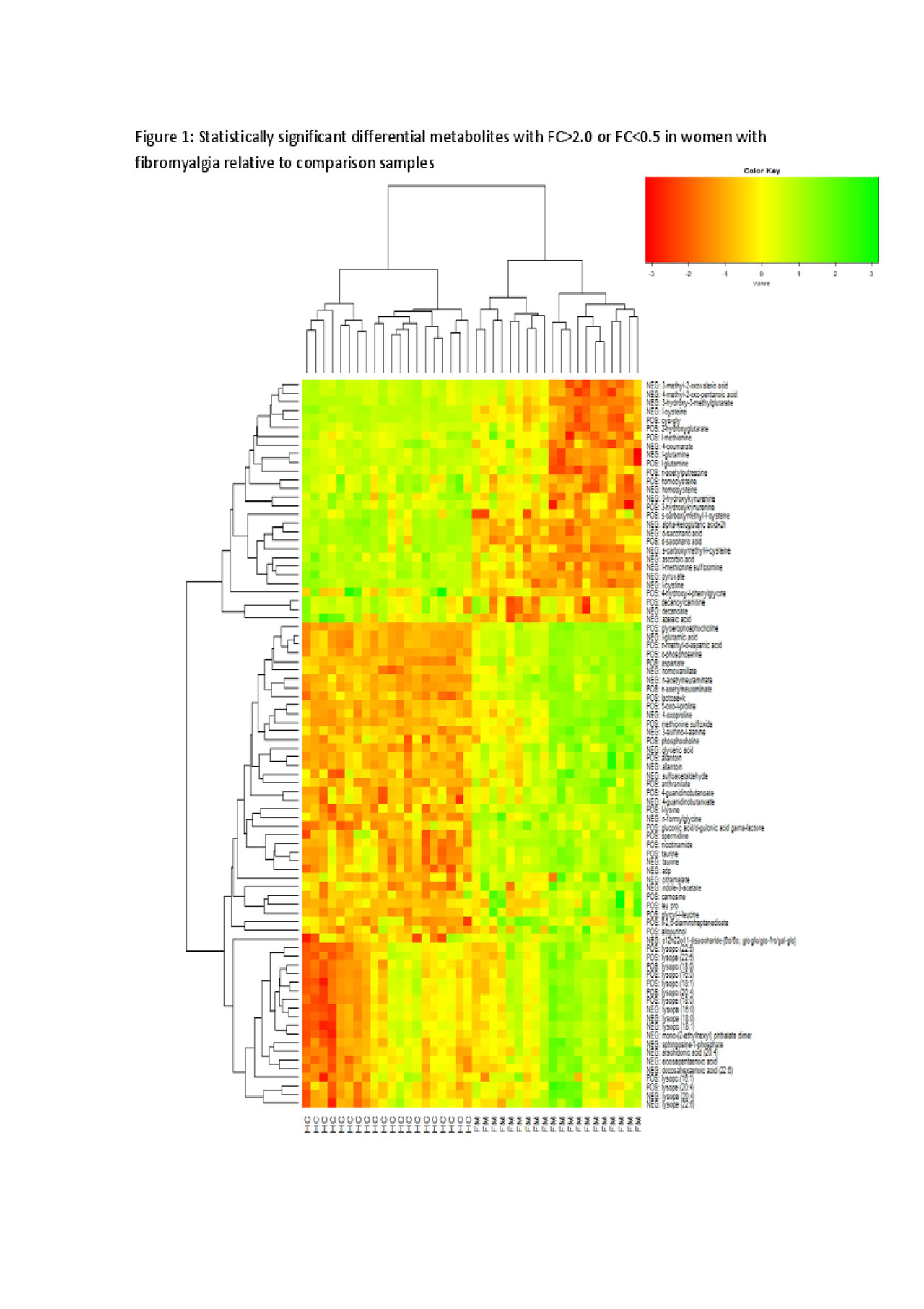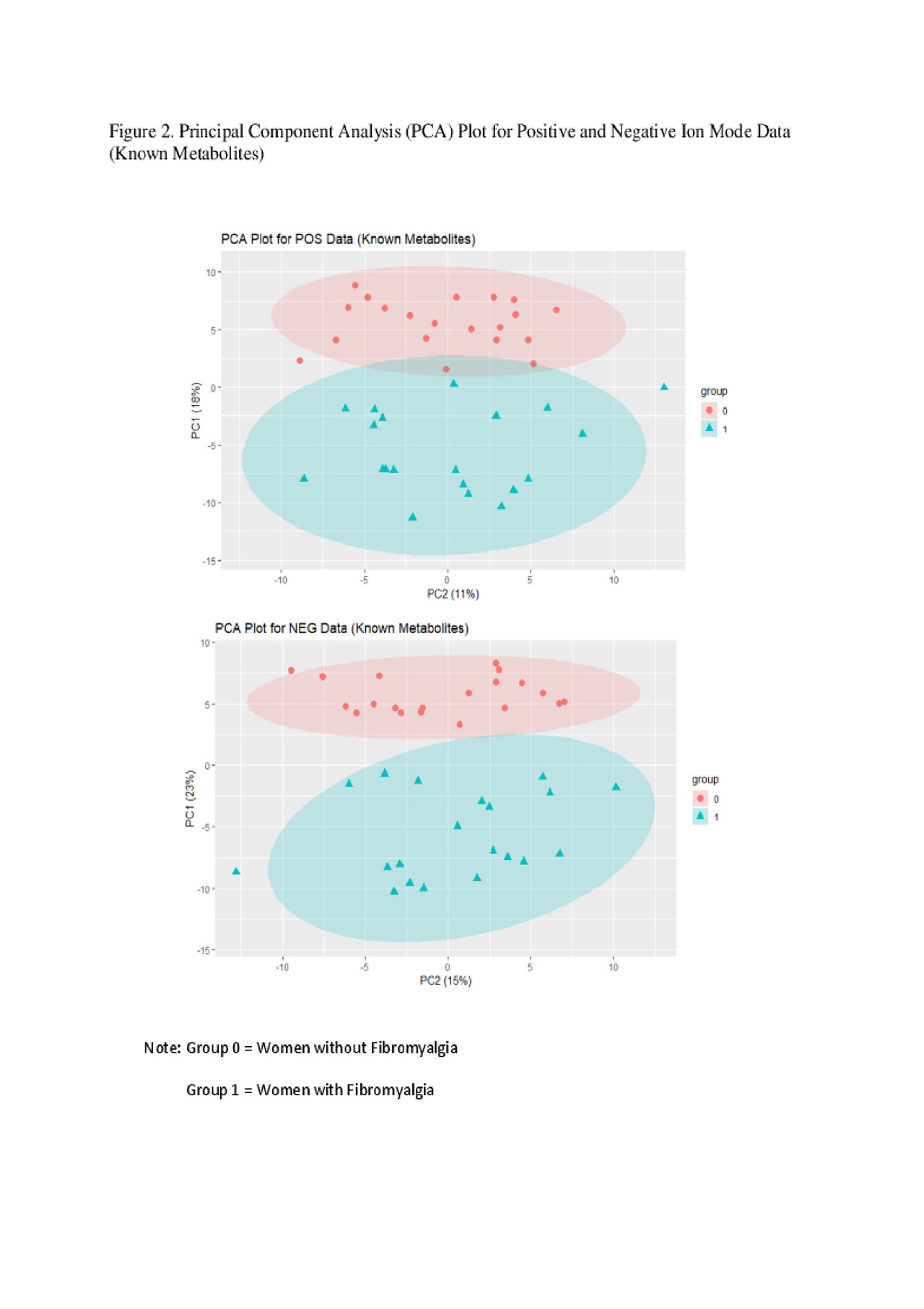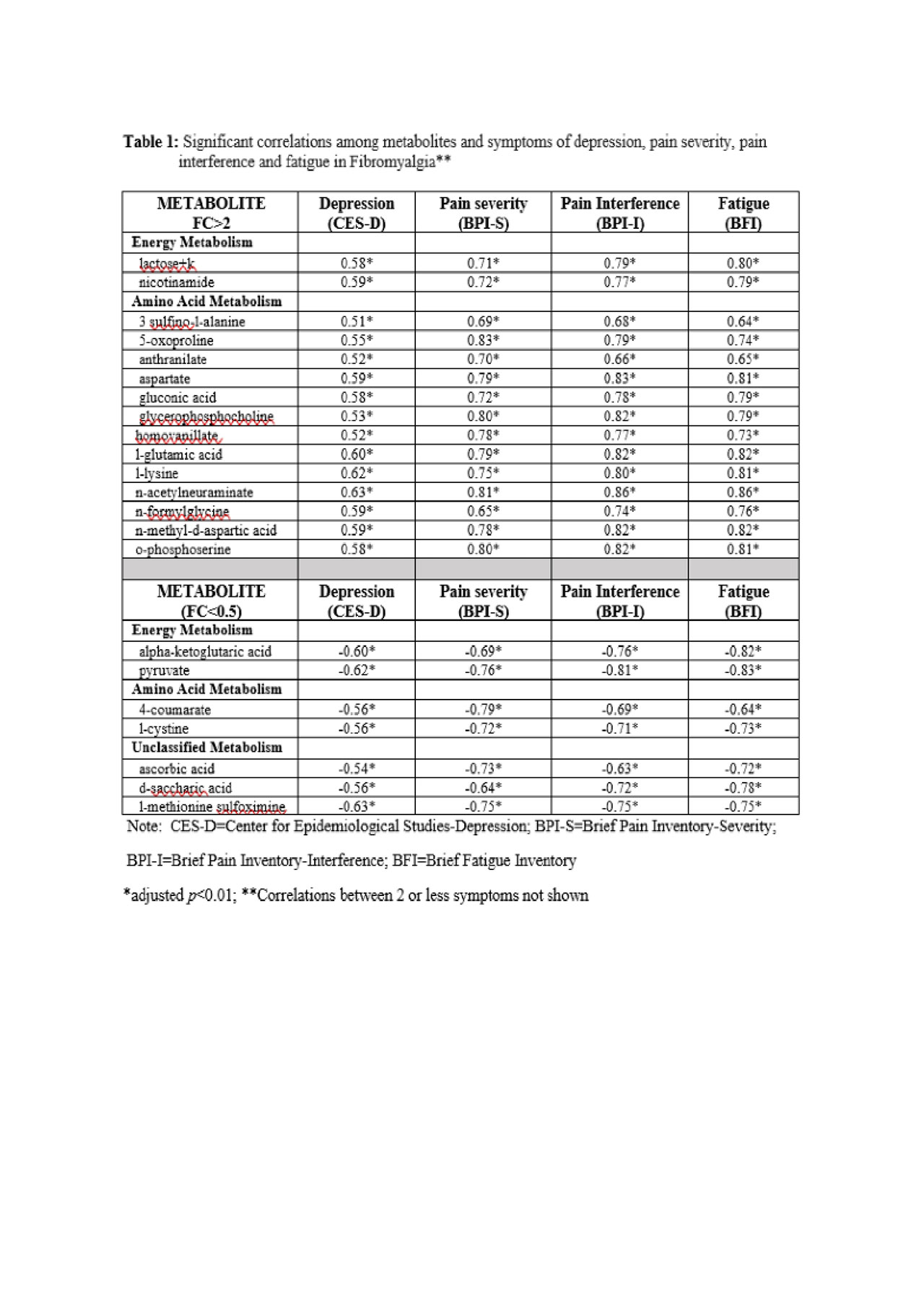Session Information
Session Type: Poster Session (Sunday)
Session Time: 9:00AM-11:00AM
Background/Purpose: The biological perturbations associated with fibromyalgia (FM) remain unclear. The recognition of objective measures to confirm FM diagnosis have not been identified. The obscurity regarding the pathogenesis of FM underscores the pressing need to enhance understanding of the biological mechanisms that may distinguish patients with FM from individuals without FM. The purpose of this pilot study was to examine levels of global metabolites and relationships among metabolites, symptoms of pain, fatigue and depression in women with FM (n=20) and without FM (n=20).
Methods: Using a cross-sectional design, we analyzed banked plasma specimens and symptom data from two FM studies and a newly recruited age-matched comparison group. Global metabolomics analysis was performed using state-of-the-art high resolution mass spectrometry coupled with ultra-high performance liquid chromatography. SIMCA-Q software, unsupervised principal component analysis (PCA) and supervised orthogonal partial least-squares discriminant analysis (OPLS-DA) were used to investigate differential metabolite concentrations between groups (fold change; FC >2 or < 0.5). Variable Importance in Projection (VIP) was calculated for each metabolite to provide a quantitative estimation of the discriminatory power of each individual metabolite to classify FM. Means and standard deviations were computed for pain, fatigue and depression scores and metabolite concentrations. Logistic regression analysis was used to compare differences among metabolites and symptoms of pain, fatigue and depression between groups. Pearson correlation coefficients were assessed between significantly differentiated metabolites and symptom severity scores.
Results: Of 1462 significantly differentiated metabolites or unknown compounds between women with and without FM, there were 48 with an FC >2 and VIP >1 and 23 with an FC< 0.5 and VIP >1 (Figure 1). These differential metabolites correctly classified women with FM from women without FM with 100% accuracy (Figure 2). Of the significantly differentiated metabolites between groups, 15 metabolites with FC >2 and 7 metabolites with FC< 0.5 had moderately strong association (r=0.51-0.63) with depressive symptoms in women with FM (Table 1). The metabolite, anthranilate, is associated with the tryptophan/kynurenine pathway, which, when dysregulated is related to depression, a symptom with a prevalence up to 80% in persons with FM. Additional metabolites significantly differentiated between women with FM compared to women without FM were correlated with symptom severity of fatigue (r=0.64-0.86) and pain (r=0.63-0.83), and pain interference (r=0.63-0.86).
Conclusion: The preliminary data presented suggests that metabolomic profiles can be used to classify women with and without FM, with specific metabolite concentrations contributing to symptom severity in women with FM. Future work will confirm these findings in a large, comparative cohort, targeting metabolites and symptomology and examine if a nonpharmacologic intervention can affect change in symptom severity, interference, and identified metabolite/symptom relationships.
interference and fatigue in Fibromyalgia**
To cite this abstract in AMA style:
Menzies V, Starkweather A, Yao Y, Garrett T, Lynch-Kelly D, Patel P, Lyon D. Metabolomic and Symptom Comparison in Women With/without Fibromyalgia: A Pilot Study [abstract]. Arthritis Rheumatol. 2019; 71 (suppl 10). https://acrabstracts.org/abstract/metabolomic-and-symptom-comparison-in-women-with-without-fibromyalgia-a-pilot-study/. Accessed .« Back to 2019 ACR/ARP Annual Meeting
ACR Meeting Abstracts - https://acrabstracts.org/abstract/metabolomic-and-symptom-comparison-in-women-with-without-fibromyalgia-a-pilot-study/



